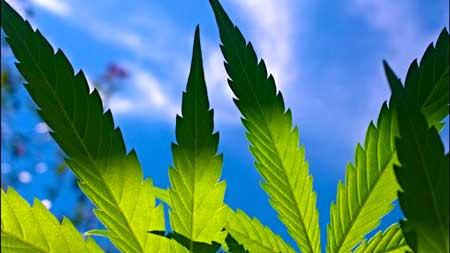Will photo plants flower under 18 hrs light 12 hrs dark?
Announcement
Collapse
No announcement yet.
Flowering with a 18/12 light cycle?
Collapse
X
-
I don'y think so , can you go 24 hr it will make it stop flowering?Bubblehead
4x4 Gorilla Tent 600 watt hps and Veg Tent T5 Fluorescence
4 Cures and a Life time gardener
http://forum.growweedeasy.com/forum/...ze-these-leafs
http://forum.growweedeasy.com/forum/...female-56-days
-
I would never have thought up that question, but it is interesting. My understanding of flowering requirements is 12, uninterrupted hours of complete darkness. Now, is it explained that way because it needs 12 hours of dark, or does it need at least one half of the hours in this new 30 hour day?? How do it know??completed 7 grows
what I have learned so far:
environment maters more than nutrients
at least a dab of nutrients in every watering
effective flushing before harvest is critical to quality
Comment
-
The length of light is not a factor. More interesting is that regardless of your light/dark cycle or number off hours in your plants day you can flash the plants with red light before12 hours and prevent flowering. Photoperiodism is controlled by pigment response too light immediately following dark. If the plant was dark for 12 hours you get a different behavior than if you flashed it before the12 hours were finished. Simple right?Last edited by South Sierra Dude; 12-09-2016, 02:13 PM.SSD
Comment
-
Yes! I knew a grower who tried 18/12 and it worked for him (at least for 4 plants over two grows - I lost contact after that). So I'm pretty confident it works at least for some plants. He said his biggest problem was finding a timer that would do it
From what I understand, the plant pays attention to dark periods when it comes to deciding when to flower. The way it can "tell" if it's time to flower is once it's dark it has a certain protein that starts building up in the plant. When the plant is exposed to light (specifically red light), it instantly stops the protein-building. If the protein gets time to build up long enough overnight (an amount of time that is different for every plant, but 12 hours is enough for most strains), that produces a signal to the plant to start flowering. Getting this signal repeatedly causes buds to start forming. So the main thing that prevents flowering is short, interrupted night periods, since that protein doesn't get time to build up enough to make the flowering signal.
However, it wouldn't surprise me if some strains are more likely to run into problems on non-24-hour-based schedules, especially ones that are easily light stressed or have a hard time being kicked into flowering like pure Sativas. But then you almost wonder if a longer night period would help them with that, like an 18/13 (light/dark) schedule or even 19/14... But I'm certain there's a point where adding more light hours will just prevent it from flowering at all.
That being said, personally it seems like an inconvenience since the plants won't be getting up and going to sleep on the same schedule every day (making it harder to schedule gardening time around work hours)!
- Likes 1
Comment
-
Thanks for the input Nebula, especially since you know of someone that did it successfully. But like you said, some strains would be more susceptible to failure with that schedule and unless you really do your research on your strain, it could prove a failure.
Like I said in an earlier post, if he really wants to know, then he should experiment.
- Likes 1
Comment
-
Maybe the vegetative/flowering change is based on a ratio, like 1:1 = flower, and anything greater like 2:1 will, just a thought.? Try the different light schedule and if you get flowers, great!, I, myself, would not want to waste my limited grow area on experimentation, but "to each His own".Smoke weed,.....grow peace!
Comment
-
I don't think so, that 12 hours of uninterrupted light is essential....unless you meant 6/18.Originally posted by CarlsotiI wonder if you could add that protein during an 18/6 cycle and force flowering...
Comment
-
Oh, a supplement to simulate that protein. I get it.
-
Hormone therapy does wonderful stuff but also not always what you would expect. For example cabbage, sprouts, asparagus, broccoli, cauliflower, and about 5 or so other vegetables are all in fact the same plant. Genus AND species that is. The only thing that differentiates them is specific hormones being delivered at specific times.Last edited by South Sierra Dude; 12-09-2016, 02:16 PM. Reason: Changed genus OF species to AND speces
-

Comment